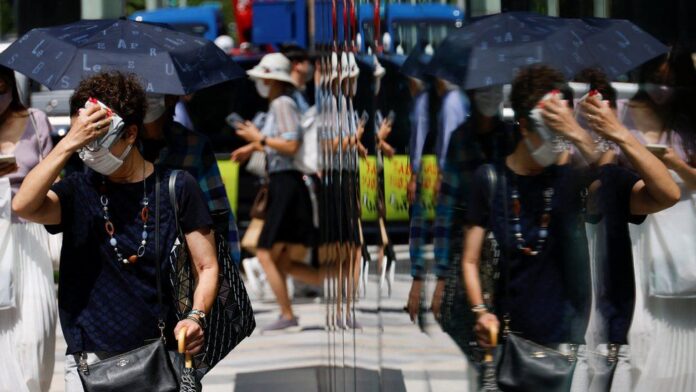In response to the escalating fatalities attributed to heat-related illnesses, Japan’s Environment Ministry unveiled a specialized heat stroke alert system on Wednesday. This initiative comes as part of a concerted effort to combat the surge in deaths during the scorching summer months in recent times.
Under the new alert system, municipalities will be prompted to activate designated facilities, such as libraries and community centres, to serve as “cooling shelters” for residents in need. This proactive measure aims to provide a refuge from the sweltering temperatures, particularly for vulnerable populations.
Also Read: India | Heatwave Alert Issued for 8 States as Temperatures Set to Soar
Set to remain operational until October 23 this year, the alert system seeks to mitigate the adverse effects of extreme heat and safeguard public health during the peak summer period.
The urgency of this action is underscored by the alarming statistics from the Japan Meteorological Agency, revealing that the nation experienced its highest average summer temperature in 2023 since comparable records began in 1898. This concerning trend underscores the critical need for proactive measures to protect lives amid escalating temperatures.
As temperatures continue to climb and heatwaves become more frequent, the implementation of this alert system underscores Japan’s commitment to prioritize public safety and well-being. By providing accessible cooling shelters and timely alerts, authorities aim to reduce the risk of heat-related illnesses and fatalities, particularly among the elderly and other vulnerable groups.
The launch of this initiative also highlights the importance of proactive measures in adapting to the impacts of climate change. With rising global temperatures posing increasing challenges to public health, Japan’s proactive approach serves as a model for other nations grappling with similar climate-related threats.



